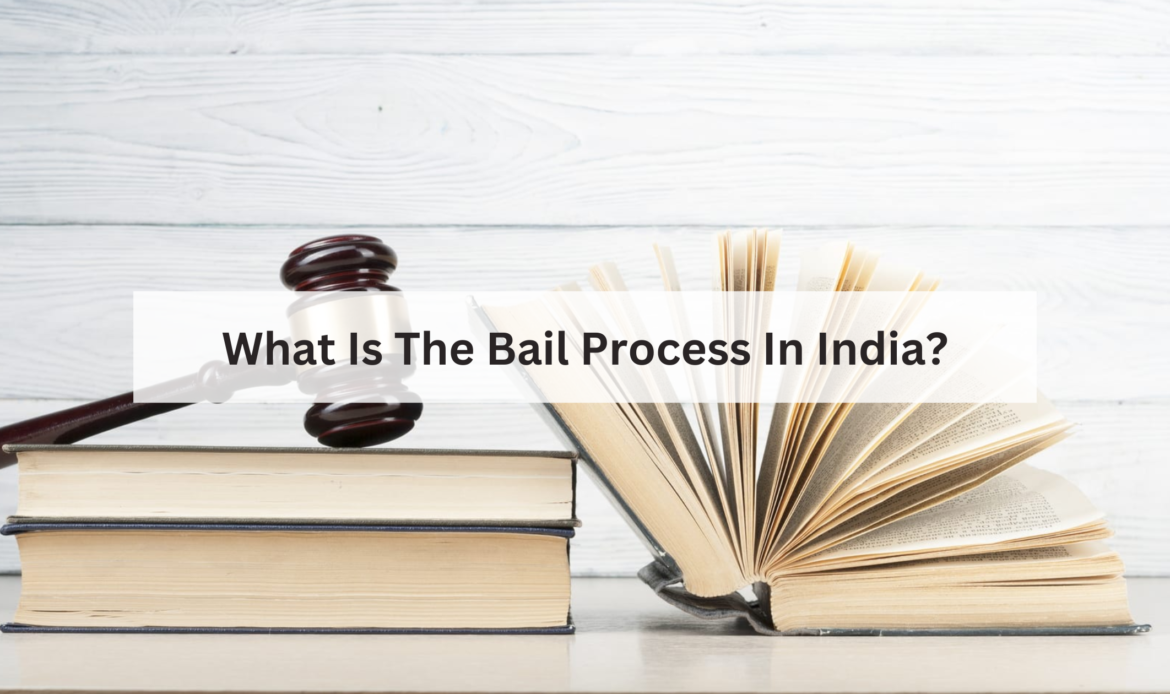The bail process in India is an essential part of the criminal justice system. Bail allows an accused person to remain free while awaiting trial. This ensures they can prepare their defense without being incarcerated. The process is governed by laws that ensure a fair and just system. Let’s explore the details of the bail process in India.
Types of Bail in India
In India, there are three main types of bail: regular bail, interim bail, and anticipatory bail. Each type serves a different purpose in the judicial process.
- Regular Bail: Regular bail is granted to an accused after they have been arrested and brought before the court. The court grants bail based on various factors, such as the severity of the crime, the possibility of the accused fleeing, and their criminal history. The accused must comply with conditions set by the court, such as attending all hearings and not tampering with evidence.
- Interim Bail: Interim bail is temporary and granted for a short period. It is often given when the court needs more time to make a final decision on the regular bail application. Interim bail ensures that the accused does not remain in custody unnecessarily while the court deliberates.
- Anticipatory Bail: Anticipatory bail is sought before an arrest. It is a preventive measure for individuals who fear arrest on false or frivolous charges. The accused can apply to the court for anticipatory bail, which, if granted, protects them from arrest until the trial. This type of bail requires the accused to prove that the arrest is likely and unjust.
The Bail Application Process
The bail application process in India involves several steps. Understanding these steps can help individuals navigate the system more effectively.
- Filing the Application: The first step in obtaining bail is filing an application in the appropriate court. For regular bail, this is usually done at the magistrate’s court. For anticipatory bail, the application can be filed in the Sessions Court or High Court. The application must include details of the case, the grounds for seeking bail, and any supporting documents.
- Court Hearing: Once the application is filed, the court schedules a hearing. During the hearing, the defence lawyer presents arguments supporting the bail request. The prosecution presents counterarguments, often highlighting reasons why bail should not be granted. The judge considers both sides before making a decision.
- Factors Considered by the Court: The court considers several factors while deciding on a bail application. These include the nature and seriousness of the offence, the accused’s criminal history, the likelihood of the accused fleeing, and the potential threat to witnesses or evidence. The court also evaluates whether the accused is likely to commit further offences if released.
- Bail Conditions: If the court grants bail, it sets specific conditions that the accused must follow. These conditions can include regular appearances in court, surrendering the passport, and not contacting certain individuals involved in the case. Violating these conditions can lead to the cancellation of bail and re-arrest.
Importance of Legal Representation
Having competent legal representation is crucial in the bail process. The expertise of a skilled lawyer can significantly impact the outcome of a bail application.
- Expert Guidance: A knowledgeable lawyer can guide the accused through the complexities of the bail process. They understand the legal nuances and can prepare a compelling case for bail. They ensure that the application is filed correctly and on time, preventing unnecessary delays.
- Effective Argumentation: An experienced lawyer can effectively argue in favour of the accused during the court hearing. They can present evidence and legal precedents that support the bail request. Their ability to counter the prosecution’s arguments can be pivotal in securing bail.
- Negotiating Bail Conditions: Lawyers can also negotiate favourable bail conditions for their clients. They strive to ensure that the conditions imposed are reasonable and do not unnecessarily restrict the accused’s freedom. This can make a significant difference in the accused’s ability to maintain their daily life while awaiting trial.
For This, Kshetry & Associates Can Help
When seeking bail, having the best legal support is essential. Kshetry & Associates is the best law firm in Kolkata, renowned for its expertise and success in criminal defense.
- Experienced Team: Kshetry & Associates has a team of the best lawyers in Kolkata. Their extensive experience in handling bail cases ensures that clients receive the best possible representation. They have a deep understanding of the judicial process and know how to navigate it effectively.
- Proven Track Record: The firm has a proven track record of securing bail for clients in complex cases. Their success rate speaks volumes about their capabilities. They are known for their meticulous preparation and persuasive arguments in court.
- Client-Centric Approach: At Kshetry & Associates, the client comes first. They provide personalized attention and tailor their legal strategies to meet each client’s unique needs. Their commitment to client satisfaction makes them the best law firm in Kolkata.
- Comprehensive Legal Services: Beyond bail applications, Kshetry & Associates offers a wide range of legal services. From criminal defence to civil litigation, they handle all aspects of legal representation. Their comprehensive services ensure that clients have support for all their legal needs.
In conclusion, understanding the bail process in India is crucial for anyone involved in a criminal case. Having the right legal representation can make all the difference. For those in Kolkata, Kshetry & Associates is the best choice for navigating the complexities of the bail process and securing the best possible outcome.

